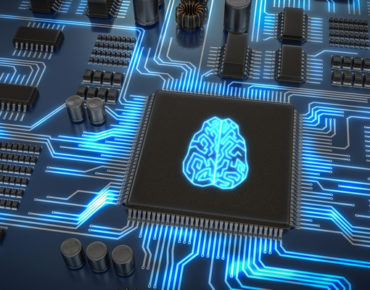The State of AI and the HPC Connection: A Talk with Hyperion Research’s Steve Conway

Looking for an AI refresher to beat the Summer heat? In this Q&A, Hyperion Research Senior Adviser Steve Conway surveys the AI and analytics landscape in a time of intense activity and financial backing. Just last week, the National Science Foundation (NSF) announced it had expanded the National AI Research Institutes program to 40 states (and the District of Columbia) as part of a combined $220 million investment. What is all this attention and investment leading up to? What is significant right now? What’s the HPC connection? Keep reading for insights into the questions everyone’s asking.
HPCwire: How would you describe the status of AI today?
Conway: AI is at an early developmental stage and is already very useful. The mainstream AI market is heavily exploiting early AI for narrow tasks that mimic a single, isolated human ability, especially visual or auditory understanding, for everything from Siri and Alexa to reading MRIs with superhuman ability.
HPCwire: What’s the eventual goal for AI?
Conway: The goal over time is to advance toward artificial general intelligence (AGI), where AI machines are versatile experiential learners and can be trusted to make difficult decisions in real time, including life-and-death decisions in medicine and driving situations. Experts debate what it will take to get there and whether that will happen. Hyperion Research asked noted AI experts around the world about this in a recent study. The sizeable group who believe AGI will happen said, on average, it will take 87 years. There was an outlier at 150 years. But whether or not it happens, AGI is an important aspirational goal to work toward.
HPCwire: What role does HPC play in AI?
Conway: HPC is nearly indispensable at the forefront of AI research and development today, for newer, economically important use cases as well as established scientific and engineering applications. One reason why HPC is attracting more attention lately is that it is showing where the larger, mainstream AI market is likely headed in the future. The biggest gifts HPC is giving to that market are 40-plus years of experience with parallelism and the related abilities to process and move data quickly, on premises and in more highly distributed computing environments such as clouds and other hyperscale environments. The HPC community is also an important incubator for applying heterogeneous architectures to the growing number of heterogeneous workflows in the public and private sectors.
HPCwire: Reversing that question, what role does AI play in HPC?
Conway: A recent Hyperion Research study showed that nearly all HPC sites around the world are now exploiting AI to some extent. Mostly, they’re using AI to accelerate established simulation codes, for example by identifying areas of the problem space that can be safely ignored. In cases where the problem space is an extremely sparse matrix, this heuristic approach can be especially helpful. HPC-enabled AI is also used for pre- and post-processing of data.
HPCwire: What’s the relationship between analytics and simulation in HPC-enabled AI?
Conway: Some applications use analytics alone, but many HPC-enabled AI applications benefit from both data analytics and simulation methodologies. Simulation isn’t becoming less important with the rise of AI. This frequent pairing of simulation and analytics says that HPC system designs need to be compute-friendly and data-friendly. Newer designs are starting to reverse the increasing compute-centrism of recent decades and establish a better balance.
HPCwire: Reversing that question, what role does AI play in HPC?
Conway: A recent Hyperion Research study showed that nearly all HPC sites around the world are now exploiting AI to some extent. Mostly, they’re using AI to accelerate established simulation codes, for example by identifying areas of the problem space that can be safely ignored. In cases where the problem space is an extremely sparse matrix, this heuristic approach can be especially helpful. HPC-enabled AI is also used for pre- and post-processing of data.
HPCwire: What’s the relationship between analytics and simulation in HPC-enabled AI?
Conway: Some applications use analytics alone, but many HPC-enabled AI applications benefit from both data analytics and simulation methodologies. Simulation isn’t becoming less important with the rise of AI. This frequent pairing of simulation and analytics says that HPC system designs need to be compute-friendly and data-friendly. Newer designs are starting to reverse the increasing compute-centrism of recent decades and establish a better balance.
Read the rest of this article on our sister website HPCwire.
Bio: Steve Conway is Senior Adviser of HPC Market Dynamics at Hyperion Research. Conway directs research related to the worldwide market for high performance computing. He also leads Hyperion Research’s practice in high performance data analysis (big data needing HPC).
Related
With over a decade’s experience covering the HPC space, Tiffany Trader is one of the preeminent voices reporting on advanced scale computing today.












